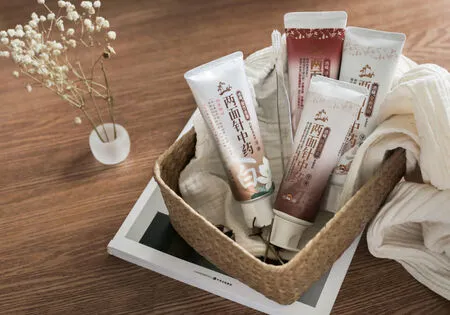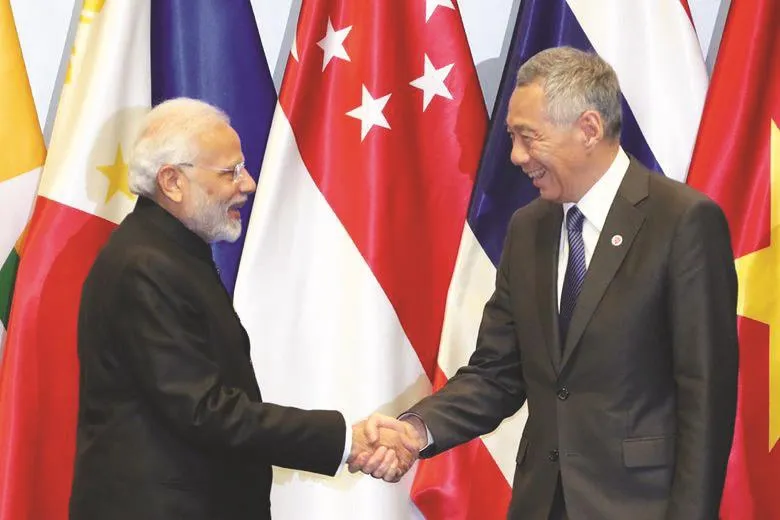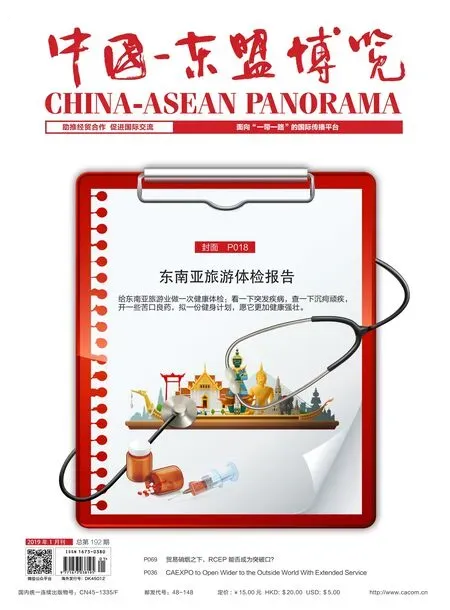两面针:打造大健康产业生态圈让民族品牌走向世界
2019-02-16朱英华
□ 文/本刊记者 朱英华
“一口好牙,两面针”。这句广告语很多消费者都不陌生。作为中国知名的民族品牌,两面针承载着20世纪80~90年代中国人的时代记忆。但是很多人不知道,如今的两面针已是一款风靡东南亚的牙膏,在马来西亚、泰国、柬埔寨等东南亚国家都有它的身影,两面针中药牙膏品质获得了东南亚地区用户的好评。
两面针的“前世今生”
对于柳州两面针股份有限公司(以下简称“两面针”)的“前世今生”,两面针副总裁吴堃介绍,两面针的发展历程大致可以分为三个阶段。第一阶段,从立产品到立品牌。两面针起源于1941年成立的亚洲枧厂等5家小型私营肥皂厂。1978年组建“柳州市牙膏厂”,同年,率先成功研制出中国国内第一支中药牙膏。得益于中国人对传统中华医药的认同与信赖,两面针中药牙膏迅速占领了中国牙膏市场的大部分份额,连续多年在中国国内同类产品中产销量第一。这个阶段,两面针完成了立产品。两面针第一支中药牙膏上市之后,市场覆盖率达到了25%,即4个牙膏消费者中就有一名两面针牙膏的顾客。市场认可带动了两面针产品的地位,1992年,两面针进行商标注册,完成了从立产品到立品牌的过程。第二阶段,从树品牌到树公司。品牌成功树立后,1994年,两面针完成股份制改造,成功完成由树品牌到树公司的阶段。第三阶段,从企业上市到中药理念深度开发。两面针改制为股份制公司后,2004年,成为行业首家以自己名字在上海证券交易所挂牌上市的公司。两面针开始尝试多元化经营战略,从单一的牙膏产业扩大到洗涤、妇女用品等等,并向众多进入中国市场的外资牙膏品牌学习管理经验,在竞争中发展壮大。两面针公司上市后,在扬州设立酒店用品有限公司,将中药护理理念推向酒店用品领域。目前,两面针酒店用牙膏在全国酒店用品中占据龙头地位。此外,继重组安徽芳草日化股份有限公司后,两面针在2005年收购柳州制药厂。至此,制药业和中药日化相结合,两面针完成向大健康产业转型的重要布局。
借东博会“东风”铺就国际路

两面针生产的中药牙膏
2018年9月7日,中国—东盟博览会战略、行业、支持合作伙伴新闻发布会在南宁国际会展中心举行,13家企业成为第15届东博会战略、行业、支持合作伙伴,其中就有两面针。这是自2013年以来,该公司连续6届与东博会建立合作。据了解,每年两面针都为东博会制定出一套指定的洗护礼品装,供东盟各国首脑住宿使用。得到国际首脑好评的两面针被传播到东盟地区,成为国际友人眼中的中国民族品牌。借助东博会的平台,两面针中药日化产品走进新加坡、马来西亚、缅甸、柬埔寨等东盟国家,成功开拓了海外市场。吴堃表示,对两面针来说,东博会是一个重要的桥梁。通过东博会,两面针成功地把产品和理念拓展到东南亚市场。目前,两面针在东南亚市场广泛开展品牌合作,实施产品代理,进行产业推广升级。吴堃预计,2019年,两面针将全部打通东盟10国市场(目前文莱、老挝、越南还没建立合作),除了在各国设立经销商,还计划在缅甸、马来西亚建厂,未来将深度开发东南亚地区市场。
两面针的国际化战略还体现在对产品的国际化升级上。2018年8月,两面针牙膏在美国完成FDA检测,成为中国第一支获得美国合法销售地位的功效型中药牙膏,同时也是目前中国国内唯一获得此地位的牙膏品牌,实现了从东南亚到美国的销售版图升级。
“通过东博会这个平台,我们在东盟市场上寻找到更多战略合作伙伴,同时通过积极‘走出去’,把中药健康理念向全球推广,为将两面针打造成世界品牌、百年老店打下良好的基础。”吴堃说。
挑战下的“二次创业”
有机遇必然有挑战。在发展的历程中,两面针也面临着许多困难和挑战。从1996年开始,外资品牌利用强大的营销攻势开始快速占领中国市场,中国牙膏市场格局也被重新洗牌。此外,2007年以后,随着两面针从“相关多元化”转型到“非相关多元化”发展战略后,两面针日化产品出现销量下滑的局面。2017年末,两面针董事长林钻煌提出“聚焦主业,效益先行”的聚焦发展战略,重新确立日化和药业为公司主业,将药业作为支撑日化发展的基石,实现药业与日化的深度融合,发展中药理念下的健康产业。这被视为两面针回归的标志。如今的两面针,聚集核心资源与核心业务,对品牌进行全新的定位升级,在产品功效定位上聚焦于“中药修护”,这迎合了大健康环境下消费者对天然、健康的口腔产品的需求。
吴堃表示,两面针致力于成为中药理念下的大健康产业技术创新领先型企业,目前国际市场布局也面临一些挑战:其一,两面针所选择的国际化布局时机不算早,外资品牌早已布局海外各国,且影响力巨大;其二,国外文化和消费习惯不一样,两面针牙膏配方和包装就必须兼顾当地情况;其三,如何能够尽快地被当地人接受,需要摸索,找到合适的市场推广手段,每个国家都有不一样的国情。
对于未来的策略,吴堃说:“在布局方面,两面针将开展细致的工作,一个国家一个对策;在文化相融问题上,尽量找到当地的合作伙伴,借鉴别人开发当地市场成熟的经验和在国内行之有效的办法,向同行学习,积极创新。在此基础上我们力求在二次创业上走出一条全新的路子。”
从1978年研发出中国第一支中药牙膏至今41年,两面针经历了连续15年本土销量第一的辉煌,经历了作为民族品牌骄傲的荣光,也经历了市场业绩下滑的低谷。然而,追求天然、健康一直是印刻在这个品牌骨子里的信仰,他们41年一直恪守纯正中药、纯正组方,拒绝西药添加,确保中药牙膏品质。相信在未来,这个老牌民族企业一定能在“一带一路”的国际化合作共赢中,走出一条创新与成功的新路子。
·联系编辑:247620280@qq.com
Join ASEAN in Push for RCEP by Next Year,Singaporean PM Lee Tells Indian PM Modi
By Bhagyashree Garekar

Singaporean Prime Minister Lee Hsien Loong with Indian Prime Minister Narendra Modi at the ASEAN-India Summit on November 15, 2018
Prime Minister Lee Hsien Loong urged India to join ASEAN in a push to create the Regional Comprehensive Economic Partnership (RCEP), the world’s largest free trade area, next year.
“I am glad that we have made tremendous progress this year to advance the RCEP negotiations. We are now close to the finishing line, although further work remains to fi nalise the remaining details,” Mr. Lee said in remarks during the annual ASEAN-India Summit, attended by Prime Minister Narendra Modi.
The proposed pact between 16 nations, including the 10-member ASEAN grouping and its six free trade agreement partners Australia, New Zealand, Japan, China, South Korea and India, comprises 45% of the world’s population and a combined gross domestic product of about US$ 25 trillion (SGD 34.4 trillion), exceeding that of the United States.
The pact is seen as vital to securing the region’s continued prosperity, especially after a trade war broke out between its vital trading partners US and China.
Mr. Modi tweeted after the ASEAN-India meeting: “Cementing old bonds in pursuit of a glorious future. Had a great interaction with ASEAN leaders at the ASEAN-India Informal Breakfast Summit. We are happy that ties with ASEAN are strong and are contributing to a peaceful and prosperous planet.”
India has been somewhat hesitant in joining RCEP, unwilling to cut tariffs and open its market wider in the face of strong opposition from its farm sector as well as industries like steel and textiles.
The negotiations come at a sensitive time for Mr. Modi, who is seeking re-election next year.
New Delhi is especially guarded as the proposed pact includes China, India’s key trading partner as well as competitor.India has also wanted RCEP to include the service sector and improved access for its professionals.
Pointing to the trade potential that remains to be unlocked, Mr. Lee said: “We should make the full effort to bring the RCEP negotiations to conclusion in 2019. Together with the ASEAN-India Free Trade Area, we hope that this will help us reach the ASEAN-India trade target of US$ 200 billion in total trade by 2022.”
The ASEAN-India FTA was signed in 2010.Bilateral trade between ASEAN and India has grown to around US$ 80 billion, but seen as far short of its true potential. ASEAN nations are increasingly investing in India,including in ports, highways, townships and food processing, with the Modi government improving ease of doing business.
Mr. Lee also called for better maritime, air,land and digital connectivity between ASEAN and India, noting the progress made on the India-Myanmar-Thailand trilateral highway with an extension to Laos, Cambodia and Vietnam. “Enhancing air links will certainly strengthen businesses and people-to-people linkages and in order to help both Indian and ASEAN carriers tap new and emerging markets,” he added.
Mr. Modi had last met the ASEAN leaders in January at a commemorative summit in New Delhi to mark the 25thanniversary of ASEANIndia relations. They were his guests during India's Republic Day parade.
Under Mr. Modi’s Act East policy, India’s profile in South-east Asia has been on the rise. Mr. Lee noted that India has consistently supported ASEAN centrality, including in a speech made by Mr. Modi at the Shangri-La Dialogue in Singapore in June where he expanded on his vision for the Indo-Paci fi c at a time when the region feels competing pulls between the US and China.
“This period of geopolitical uncertainty gives new impetus for ASEAN and like-minded partners like India to deepen our cooperation,”Mr. Lee said. “ASEAN and India must continue to enhance our strategic partnership,”Mr. Lee said, noting that Singapore has always been a strong and consistent advocate for India's inclusion in the ASEAN community.
· Source: The Straits Times
